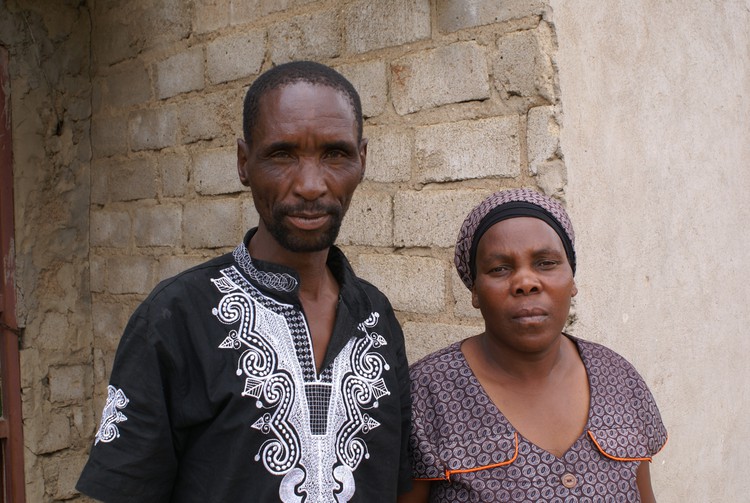
Michael Komape Court Hears of Terrible Condition of Limpopo’s School Toilets
Michael Komape was just five when he drowned in a pit toilet filled with faeces at his school near Polokwane in South Africa, on 20 January 2014. Last week, as a court case into his death began, the world celebrated World Toilet Day… and yesterday, it celebrated World Children’s Day. Twenty-year-old UN Messenger of Peace, […]

Michael Komape was just five when he drowned in a pit toilet filled with faeces at his school near Polokwane in South Africa, on 20 January 2014. Last week, as a court case into his death began, the world celebrated World Toilet Day… and yesterday, it celebrated World Children’s Day. Twenty-year-old UN Messenger of Peace, Malala, tweeted: “To every child – I dream of a world where you can laugh, dance, sing, learn, live in peace and be happy.” And, for so many children in South Africa (and around the world), a happy world would also include one in which kids could safely go to the toilet… but according to a witness in yesterday’s proceedings, 56% of Principals in Limpopo still report their school toilets being dangerous.

Last week the Polokwane Court began hearing the claim of damages from Michael’s parents James and Rosina Komape, who are suing the state.
Michael’s mother Rosina was the first witness. GroundUp reported that during a tearful testimony she described how she got the call that her son was missing, and gathered up her newly born daughter Johanna to walk to the school.
After her son’s friend told her that Michael had fallen in the toilet, she went to investigate. “Michael’s hand was protruding from a pool of faeces. Rosina Komape fainted at the sight of her son’s arm. When she regained consciousness, she asked why no one had bothered to pull him out of the toilet and possibly save his life,” said GroundUp.

On Day Three, forensic pathologist Dr Kwena Matlala described in graphic details how he found evidence of faeces in Michael’s lungs and maggots on his body from the toilet.
Yesterday’s witness, Water and sanitation engineer David Still, described the conditions of toilets in Limpopo. Read GroundUp’s report below…
***
Court Hears of Terrible Condition of Limpopo’s School Toilets
By Ciaran Ryan
Photographs shows that the school toilets where Michael Komape died were in poor condition.
Sanitation in schools in Limpopo were on trial during the sixth day of the Michael Komape court case. Komape drowned in a school pit latrine near Polokwane in 2014.
Water and sanitation engineer David Still spent most of the day in the witness box. Quoting from a study of 130 schools in Limpopo, Eastern Cape and Kwazulu-Natal completed last year, he told the Polokwane High Court that Limpopo Province was the worst of the three provinces in school toilet standards.
Some 44% of learners and 56% of school principals in Limpopo describe their toilets as dangerous, which is substantially higher than in the Eastern Cape or Kwazulu-Natal.
The court also learned that the province is spending R68,000 per new school toilet, while R2,000 is all it would take to improve the health and safety of an existing pit latrine. Pit latrines make up 40% of all school toilets in the province.
Still told the court that pit latrines are typically between 1.3 and two metres deep. Five-year-old Michael was 1.1 metres tall.
Evidence was also led showing that the Mahlodumela School, where Michael died, had requested funding for new toilets several years before funds were eventually granted in 2009.
Counsel for the State, Simon Phaswane, quoted testimony from an engineer for the state arguing that the toilets at the school were structurally robust.
“I dispute that the toilets were structurally robust,” Still said. He said the materials used in making the toilets were not adequately treated against rust and corrosion.
Michael drowned less than five years after the toilets were built. Photographic evidence before the court showed that the toilets were indeed rusted and corroded, with doors missing and the walls buckled.
The court heard that school toilets in Limpopo were poorly maintained and infrequently cleaned. A large number of school children refused to use them, citing bad smells, the dangers of falling into the pit, broken toilets, and a lack of hygiene.
Research by Still and his team found that many young children believed bad spirits and a creature known as Pinky Pinky lurked around the school toilets – another reason some of them refused to use them.
The second witness for the day was Mark Heywood, executive director of public interest law centre SECTION27, which is representing the Komape family. He described extensive efforts to engage the Limpopo Department of Education over issues such as lack of textbooks, desks, and better sanitation.
Published originally on GroundUp

